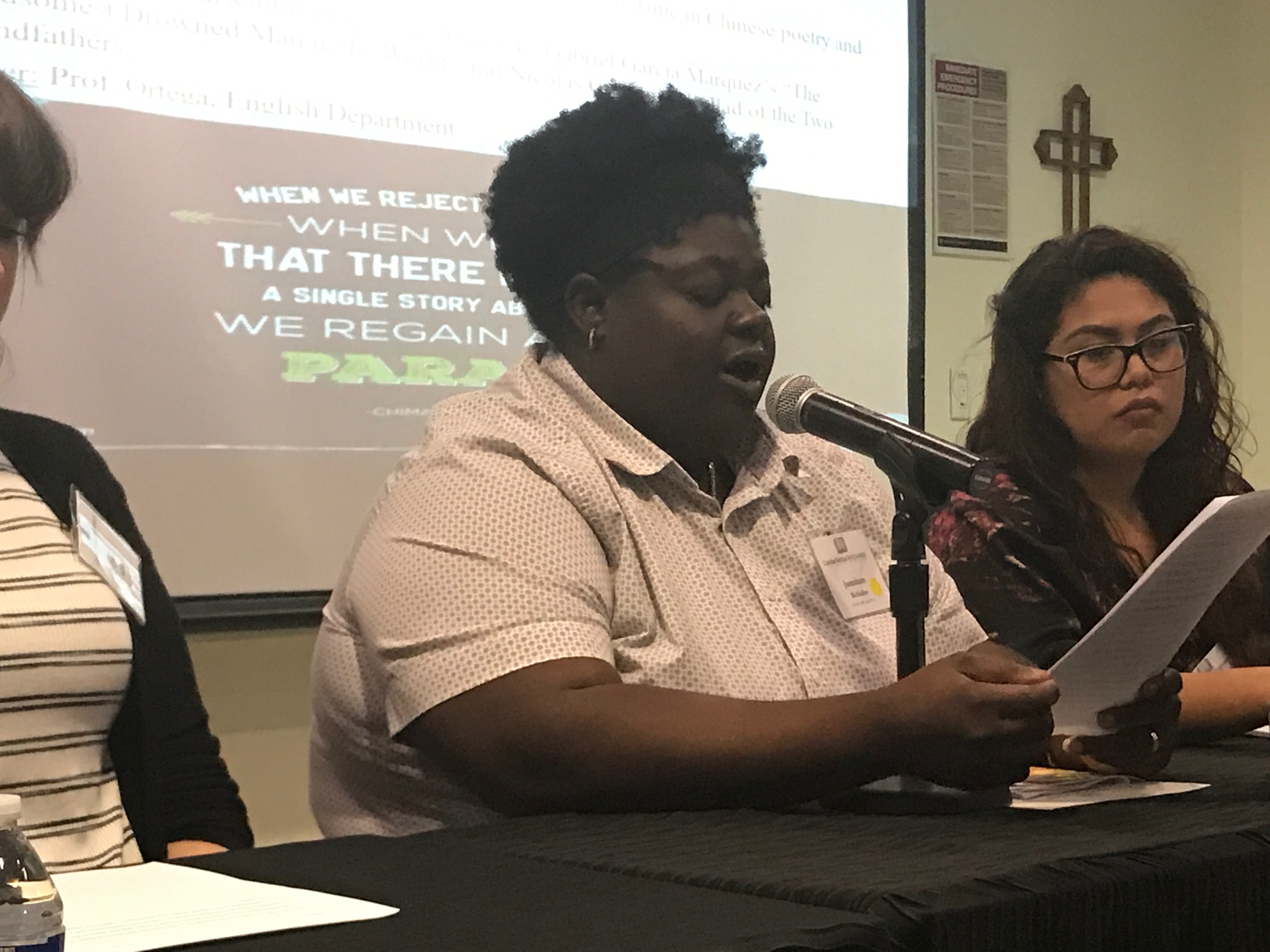
DeJada Daily
contributing writer
English major Jasminum McMullen wrestled with themes of identity, perspective, and truth as part of a three-student panel on world literature at the Caritas et Veritas symposium on Sept. 26.
McMullen chose to analyze Sembebe Ousmane’s “Tribal Scars” and Ngugi wa Thiong’o’s “Minutes of Glory” reason being she used to be a young Black girl who didn’t understand her skin or why her last name is ‘McMullen’. She wanted to get a clear picture of her own history.
“Tribal Scars” tells a story from the days of African enslavement, of how a father scarred his beautiful daughter so that she would not be so valuable to the capturers, and be sold as a slave.
Audience member and Communication Professor Germaine Goetz-Sota asked if the scarring would make the people less worthy to their own culture and village. McMullen shocked the crowd by stating that some women are working to remove their scars, while some women keep their scars to mark their survival.
McMullen continued with “Minutes of Glory” which is about a young girl who changed her name from Wanjiru to Beatrice to identify with the European group that she is not a part of. She searched for items and cultural things that could allow her to complete her transformation. She used creams to lighten her skin, she stole money from a man whom wanted the same thing as her – acknowledgement. His money was used to purchase expensive accessories and clothing along with a wig. The young girl wanted to become someone who others could identify with by trading her own culture for another.
An audience member asked McMullen to reflect on the statement of why she chose these stories and what she got from them after reading them. McMullen said she received her history from a different perspective than the Western cultural version that she has learned. She was given the opportunity to make personal connections and remember the first person to ever tell her that she was beautiful— her mother. That pushed her toward her goal even more. That impacted why she chose these two stories: to know what her skin represents and why she should accept it. Within these stories, qv she found her identity.
Nevertheless, she’s still searching and hoping to read more stories to make a clearer picture for herself of what it means to have darker skin.
daildeja@my.dom.edu
